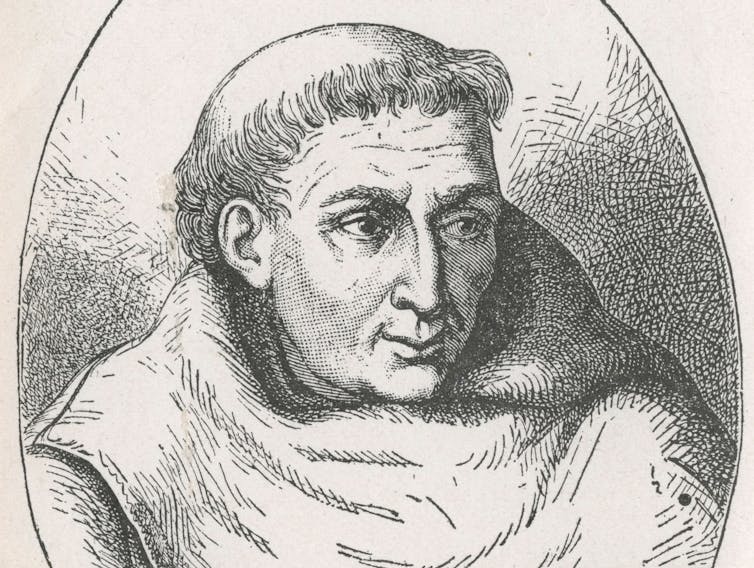The 'first scientist's' 800-year-old tonic for what ails us: The truth
 English scientist Roger Bacon believed everyone has a responsibility to think for themselves.[Bibliothèque interuniversitaire de santé, CC BY]
English scientist Roger Bacon believed everyone has a responsibility to think for themselves.[Bibliothèque interuniversitaire de santé, CC BY]
It seems that science has been taking a beating lately. From decades of denial by the tobacco industry that smoking causes cancer to more recent attempts to use the COVID-19 pandemic to score political points, a presumption seems to have taken root that it is okay to seek and speak the truth only when it suits personal interest. In times like these, we urgently need leaders who know what they are talking about and whose commitment to truth exceeds their loyalty to party or person – among them, the sort of people long known as scientists ("those who know," the literal meaning of scientist). COVID-19 is a kind of plague, but so is ignorance, and only by addressing the latter can society tackle the former.
This year marks what is believed by many to be the 800th birthday of an especially courageous truth seeker, the English polymath Roger Bacon. Though other scientists came before him, his breadth of study has led many to call him "the first scientist." Were he alive today, Bacon would likely be pursuing the truth about such matters as the coronavirus and its effects on society, as well as the need for personal and political virtues to overcome it.
Roger Bacon's pursuit of the truth
Because Bacon lived so long ago, we know more about his ideas than his life. Born in Somerset, England, his family appears to have been well off, and he studied and taught at two of Europe's oldest universities, beginning at Oxford. After earning his master of arts degree, he accepted an invitation to teach at the University of Paris for about a decade before eventually returning to Oxford.
Bacon was one of those remarkable human beings who seem to know just about everything. An expert on the thought of the ancient philosopher Aristotle, he also taught mathematics, astronomy, music, optics, alchemy (a forerunner of chemistry), moral philosophy and theology. Because of the depth and breadth of learning reflected in his Opus Majus ("Great Work"), composed at the Pope's request to describe his studies, he became known as Doctor Mirabilis or "Wonderful Teacher."
Bacon believed that the improvement of human life, both personally and socially, depends on the eradication of error. To correct what ails society, it is necessary to restore respect for learning, real-world experience and the pursuit of truth. So long as people go forth with a false map of reality, they will lose their way and never reach their true destination.

